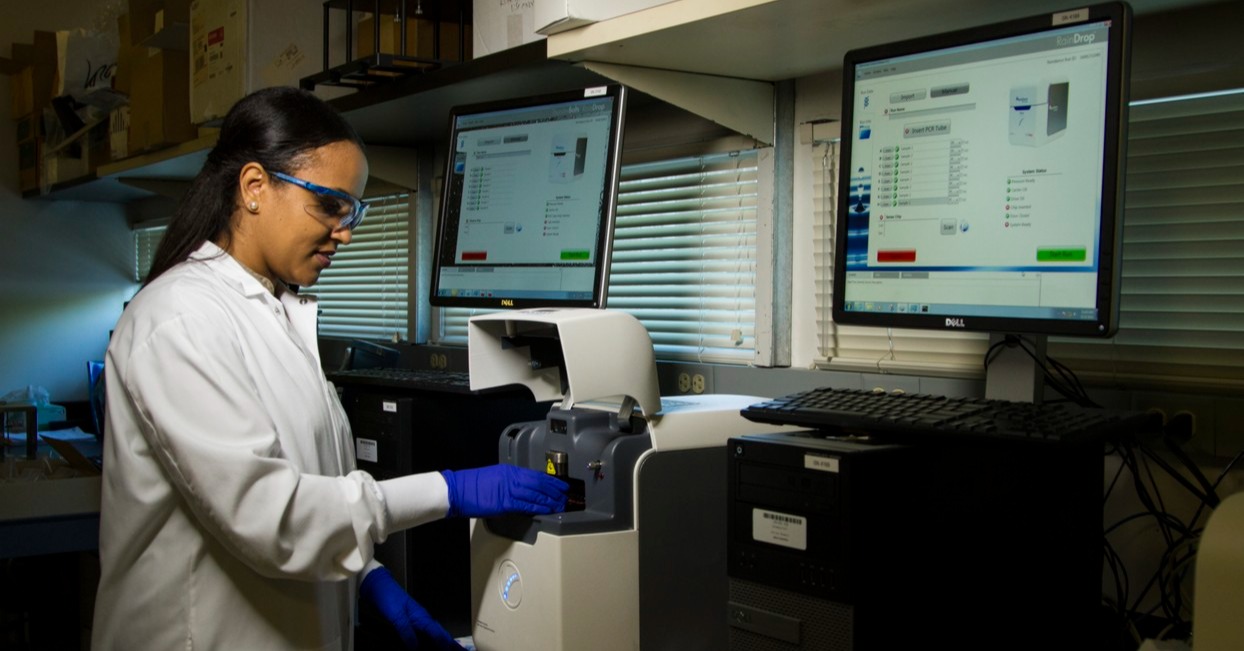
What Is the Epidemiological Triangle?
The epidemiological triangle consists of the agent, the host, and [...]

A new and deadly epidemic is sweeping across the United States. According to a U.S. Surgeon General report, this scourge “can increase the risk for premature death to levels comparable to smoking 15 cigarettes a day… [T]he physical consequences can be devastating, including a 29% increased risk of heart disease, a 32% increased risk of stroke, and a 50% increased risk of developing dementia for older adults.”
Such a deadly disease may bring to mind the recent COVID-19 pandemic or some other terrifying airborne pathogen. But, surprisingly, this new epidemic has a more mundane cause: loneliness.
We know about the loneliness epidemic, and many other detrimental health trends, thanks to the work of epidemiologists. Epidemiologists are responsible for identifying public health crises. They analyze massive quantities of data, then devise precautions to save lives.
Epidemiology is a vast discipline benefiting the population through direct and indirect means. Some epidemiologists assist pharmaceutical companies in developing safer medicines. Some strategize to slow the spread of diseases during outbreaks. Others recommend initiatives in public policy to improve health outcomes.
Does that sound like an appealing career? If so, you’ll want to learn more about the profession, including where epidemiologists work. This article answers that question and covers the following topics:
The daily duties of epidemiologists vary significantly based on their roles and places of work. However, all epidemiologists are considered public health officials. All study the effects of illness, injury, and death in defined populations and isolate trends to address public health issues. The insights they develop help them track diseases, develop public health initiatives, and discover new ways to treat or prevent illnesses.
Area of expertise often impacts where an epidemiologist works. Common areas of expertise for epidemiologists include:
While most epidemiologists conduct research or provide solutions to public health crises, all perform some, if not all, of the following tasks:
| University and Program Name | Learn More |
|
Tulane University:
Master of Public Health
|
|
|
Tulane University:
Online Master of Science in Public Health Industrial Hygiene
|
|
|
Tulane University:
Master of Public Health in Disaster Management
|
|
|
Tulane University:
Doctor of Public Health in Leadership, Advocacy, and Equity
|
Epidemiologists work for various employers, including colleges, universities, and professional schools. Employers also include federal, state, and local government agencies, nonprofit organizations, pharmaceutical manufacturers, and insurance companies.
According to the U.S. Bureau of Labor Statistics (BLS), the largest employers of epidemiologists in 2021 were:
Epidemiologists who work in applied public health, scientific research, drug development, and medicine are in the minority. The majority of epidemiologists serve state and local government agencies, hospitals, and schools.
Epidemiologists typically earn a comfortable living. The average epidemiologist earns about $80,000 per year according to the BLS. The top ten percent in the field take home more than $130,000 annually.
Epidemiologists working in scientific research and development services top the list, earning $125,000 per year on average. By contrast, those working in academia or state and local government agencies bring home a much more modest income of around $76,000 annually. Epidemiologist research analysts earn about $100,000 annually while infection control epidemiologists earn about $105,000 per year.
Clearly, epidemiologists’ earnings are as varied as their employers and skillsets.
Becoming an epidemiologist means developing a mastery of math and statistics. Data science knowledge is almost as important as understanding disease for any modern professional looking to break into this industry.
To become an epidemiologist, you’ll likely need a master’s degree. While master’s degree programs in epidemiology often have no specific degree prerequisites for applicants, certain undergraduate degrees increase your chances for admission. Pursuing a bachelor’s degree in biostatistics, public health, sociology, health informatics, public health, or biology can give you a leg up in the application process.
Once you’ve obtained your undergraduate degree, you’ll want to choose a graduate program. Some master’s degree programs in epidemiology have no specific degree prerequisites. Tulane University of Louisiana, for example, states in its Master of Public Health (MPH) in Epidemiology program description that it welcomes applicants “without previous training or experience in public health.”
The Department of Epidemiology of the University of Pittsburgh Graduate School of Public Health offers two impressive programs, an MPH in Epidemiology and a Master of Science in Epidemiology.
Master of Public Health and MS programs differ most notably in their focus. Students who enroll in an MS complete coursework based on the science of epidemiology and related statistical research methods. MPH programs typically offer a more general focus. Students in these programs study epidemiological research methods along with health policy, environmental health sciences, and social and behavioral science.
If you hope to pursue a career in epidemiological research, the MS is likely the better choice. Opt for the MPH degree if you want to take a hands-on approach to tackling public health issues.
A PhD in Epidemiology, a Doctor of Public Health (DrPH) in Epidemiology, or a joint MD/PhD degree all represent excellent choices for epidemiologists looking to break into academia or research roles. The PhD is the most common degree held by professors, higher-level clinical epidemiologists, and researchers. Choose the DrPH if you want to advance into public health management. If, however, you would like to spend your career running clinical research studies and drug trials, the joint MD/PhD may be the choice for you.
Professional certifications specific to epidemiology can bolster your standing in the field. The National Board of Public Health Examiners’ Certified in Public Health designation, the Certification Board of Infection Control and Epidemiology’s Associate – Infection Prevention and Control (a-IPC) or Certification in Infection Control (CIC) credentials are excellent options.
Questions or feedback? Email editor@noodle.com

The epidemiological triangle consists of the agent, the host, and [...]

A degree in statistics can launch your career as a [...]

Experts predict healthcare employment will grow 13 percent from 2021 [...]

An MPH in Community Health Education enables you to direct [...]
Categorized as: Epidemiology, Public Health, Nursing & Healthcare